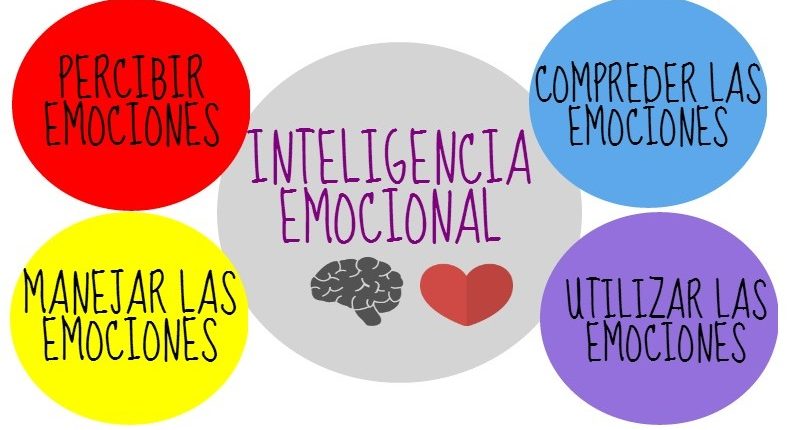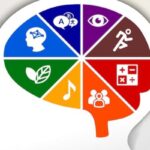We explain what emotional intelligence is and what its characteristics are. Also, the origin of the concept and its importance.

What is emotional intelligence?
emotional intelligence is the ability to identify, understand and manage emotions. It involves skills such as self-awareness, recognizing other people's expressions, and regulating one's emotions to drive desired behaviors.
The concept is related to the theory of multiple intelligences, which describes intellectual competencies as sets of skills aimed at solving different types of problems. Thus, emotional intelligence allows people to process information about emotions and use it to guide behavior. In 1995, the psychologist Daniel Goleman (1943) presented his book emotional intelligencewhich popularized the term.
An emotionally intelligent person is one capable of managing emotions to achieve positive results in their relationships with others.
See also: Social skills
Frequently asked questions
What is emotional intelligence?
Emotional intelligence is the ability to recognize, understand and manage one's own emotions, and respond appropriately to those of others.
What are the skills that characterize emotional intelligence?
The core skills of emotional intelligence are self-awareness, self-regulation, self-motivation, empathy, and sociability.
What is the importance of emotional intelligence?
Emotional intelligence is essential to establish healthy relationships with other people, resolve conflicts harmoniously and face challenges. Contributes to professional and educational well-being.
Origin of the concept of emotional intelligence

Traditionally, cognitive elements have been considered the only indicators of intelligence. However, several authors, such as Edward Thorndike (1874-1949) and David Wechsler (1896-1981), included social factors as important components of intellect. Later, psychologist Howard Gardner introduced the idea that indicators such as IQ are insufficient to achieve a comprehensive appreciation of intelligence.
Gardner described different types of intelligence. Two of them are related to social and emotional factors:
- Interpersonal intelligence . It involves understanding the emotions, intentions and desires of other people, and having the ability to react appropriately.
- intrapersonal intelligence It involves understanding one's own emotions, motivations and fears, and taking them into account when making decisions.
The relevance of emotions prompted various investigations. In 1995, David Goleman published the book emotional intelligencewhich had great repercussions and massively spread the term. This encouraged the appearance of seminars, articles and educational programs linked to learning this form of intelligence.
The dissemination of the concept also prompted the appearance of numerous tests, with the aim of measuring, calculating and comparing people's emotional abilities. In 2004, psychologists Peter Salovey, John Mayer and David Caruso designed a series of tests to evaluate people's ability to regulate their emotions he Emotional Intelligence Test (MSCEIT).
Characteristics of people with emotional intelligence
There are five fundamental skills that people with emotional intelligence develop:
- Self-awareness It is the ability to recognize and evaluate one's own emotions and feelings.
- Self-regulation. It is the acceptance of emotions and the possibility of regulating their intensity.
- Self-motivation. It is the ability to drive actions and decisions, based on one's own objectives and desires.
- Empathy. It is the ability to understand how other people feel and respond appropriately.
- Sociability. It is the ability to interact with other people, considering their circumstances and emotions.
Importance of emotional intelligence
emotional intelligence plays a central role in the development of human relationships because it facilitates communication and mutual understanding. In addition, it helps to address and resolve conflicts in a harmonious way, contributing to general well-being.
Also It is a determining factor in the functioning of all types of organizations since empathy, emotional self-control and people's motivation can condition teamwork, making it more or less efficient and satisfactory. People with high emotional intelligence tend to be more collaborative and flexible.
These skills also are important in the educational field and emotional education is part of the school curricula. Increasingly, emotional elements are taken into account in the relationship between teachers and students, and skills such as emotion recognition, empathy and emotional regulation are encouraged. In this way, both the learning of academic content and attitudes that contribute to emotional well-being are promoted.
Emotional intelligence and neurosciences
Advances in neuroscience provide a biological foundation for emotional intelligence. Brain imaging studies show that There are areas associated with emotions that are activated during emotional tasks such as the amygdala and the prefrontal cortex. These contributions, together with the psychological, pedagogical and sociological foundations, contribute to understanding emotional intelligence.
Emotion management is related to executive functions of the brain, such as planning, flexibility, reflection and decision making. All of them are related to well-being and efficient adaptation to the environment. The ability to manage thoughts and the ability to manage emotions develop jointly and interconnectedly.
Knowing the biological bases of this intelligence facilitates the creation of relevant educational programs and the design of therapeutic techniques to strengthen the brain areas involved, such as meditation or cognitive-behavioral therapy.
document.addEventListener(“DOMContentLoaded”, (e) => {
var sliderContainer, slider;
sliderContainer = document.getElementById(‘block_3b0e26363a2deda2b762cc0f21719b7f’);
if (typeof initSlider !== ‘function’) {
console.log(‘Swiper haven\’t been loaded’);
sliderContainer.className += ‘ fw scroll-snap’;
return;
};
options = {
direction: ‘horizontal’,
speed: 1000,
slidesPerView: ‘auto’,
// slidesPerGroup: 1,
centerInsufficientSlides: true,
// centeredSlides:true,
spaceBetween: 15,
breakpoints: {
720: {
// centeredSlides: false,
// slidesPerGroup: 2,
spaceBetween: 25
},
},
pagination: {
el: ‘.swiper-pagination’,
type: ‘bullets’,
clickable: true
},
}
slider = initSlider(sliderContainer, options);
})
References
- Bisquerra, R. (2010). Emotional education and well-being. Wolters Kluwer.
- Well, D. (2021). Neuroscience as the foundation of emotional education. International Journal of Emotional Education and Wellbeing,(1)1, 47-61. https://rieeb.ibero.mx
- Goleman, D. (1995). Emotional intelligence. Kairos.





